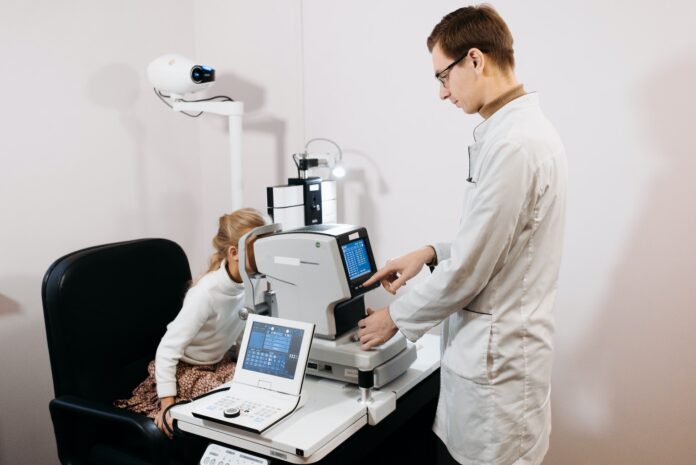Finding a good optician is a crucial step for maintaining optimal eye health and ensuring the best possible vision. Opticians are trained professionals who specialize in fitting and dispensing eyeglasses and contact lenses based on prescriptions from optometrists or ophthalmologists. They play a vital role in the process of vision correction, as they ensure that the lenses are correctly tailored to the individual’s requirements.
Selecting the right optician requires consideration of their qualifications, expertise, and the range of services they offer. It is important to assess their experience in the field, the types of eyewear they provide, and their reputation among customers. Moreover, the optician’s ability to understand and cater to one’s personal vision needs, including the fitting comfort and aesthetic preferences for eyewear, significantly contributes to the overall satisfaction with the glasses or contact lenses purchased.
Opticians are not eye doctors and cannot perform eye exams, but their skill in accurately fitting and adjusting eyewear is essential. Their educational background typically includes a 1- or 2-year degree, certificate, or diploma in opticianry. A credible optician can provide invaluable advice on lens options, frames, and care practices to maintain the quality and longevity of eyewear, enhancing both visual clarity and the health of one’s eyes.
Understanding Optician Credentials
When selecting an optician, it is crucial to consider their professional credentials, which ensure they have the necessary skills and knowledge to provide quality eye care services.
Certification and Licensure
An optician’s expertise is often validated by certifications, such as those offered by the American Board of Opticianry (ABO). The ABO certifies opticians upon successful examination, evidencing their proficiency in optical sciences. Additionally, the National Contact Lens Examiners (NCLE) certifies opticians for their expertise in fitting contact lenses. These certifications are widely recognized in the United States and may be mandatory or voluntary, depending on state regulations.
Licensure, however, is a legal requirement to practice as an optician in certain states. The process typically involves:
- Completing an approved educational program
- Acquiring relevant work experience, such as an apprenticeship
- Passing state-specific licensure exams, which may include the ABO and NCLE exams
List of requirements for licensure in some states:
- Educational Program: Completion of a two-year degree or apprenticeship program
- Work Experience: One to two years under a licensed optician or through an internship
- Licensure Exam: ABO and NCLE, plus any state-specific tests
Years of Experience
Opticians gain valuable practical skills with time, which may not be reflected in certifications alone. The years of experience an optician has can be indicative of their ability to handle a wider range of situations and provide tailored services. Opticians with extensive experience may also have a history of customer satisfaction and reliability.
Specializations
Opticians may specialize in certain areas of eye care, which can include:
- Pediatrics: Working with children and their unique vision needs
- Low Vision: Assistive devices and management for patients with limited sight
- Sports Vision: Eyewear designed for athletic use and protection
Specializations reflect an optician’s commitment to specific aspects of optical care and can guide patients toward professionals who are most capable of addressing their individual needs.
Read also: https://hoopspeak.com/how-to-find-a-good-optician-essential-tips-for-perfect-eyecare/
Selecting the Right Optician
Finding a good optician is essential for proper eye care and vision health. This selection process involves considering testimonials, accessibility, and the range of services and products an optician provides.
Patient Reviews and Testimonials
When selecting an optician, patient feedback is invaluable. Prospective patients should look for review sources such as online healthcare review platforms or testimonials on the optician’s own website to gauge the satisfaction of previous clients.
Location and Availability
The optician’s location and hours of operation are critical for accessibility. Patients should look for an optician that is conveniently located and has office hours that suit their schedule. A table can depict the opening times clearly:
| Day | Opening Hours |
| Monday | 9am – 5pm |
| Tuesday | 9am – 5pm |
| Wednesday | 9am – 5pm |
| Thursday | 9am – 7pm |
| Friday | 9am – 5pm |
| Saturday | 10am – 4pm |
| Sunday | Closed |
Services and Products Offered
An optician should provide a wide range of services and products, from eye exams and contact lens fittings to an extensive selection of frames. Patients may want to ensure the optician uses up-to-date technology and offers the latest advancements in lens technology.
The article was written in cooperation with the experts of Glasson – Optician & Optometry Management Software












